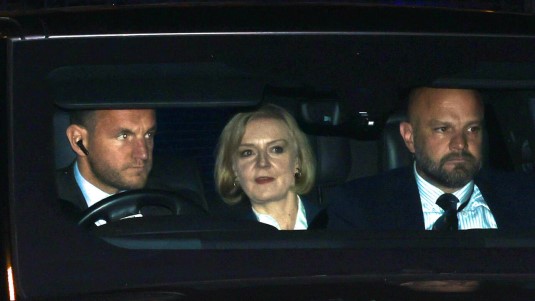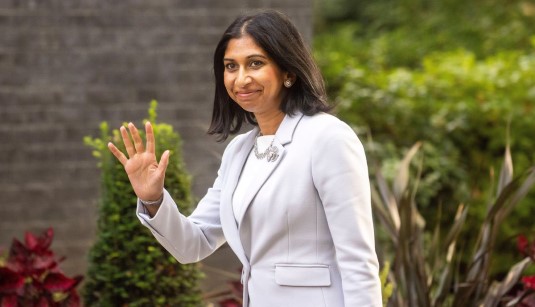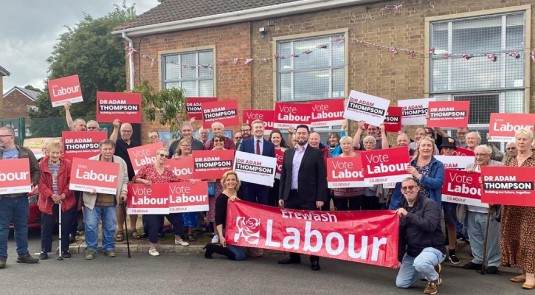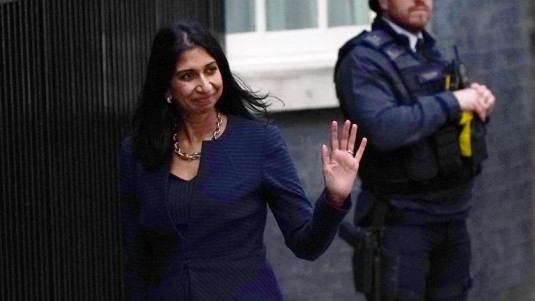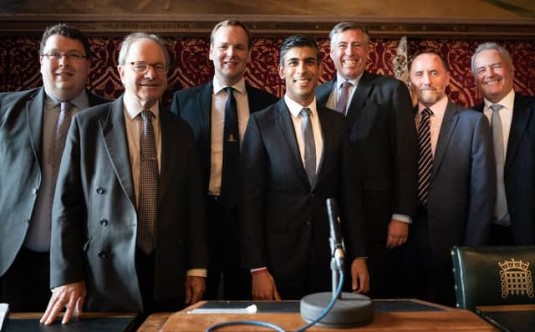
For one, Sunak is a known quantity. He's not as popular as he was, but for most he's remembered as the Chancellor who kept millions afloat as the economy shut down in the first wave of Covid. Never mind there were significant gaps and that the scheme was first touted by, horror of horrors, Jeremy Corbyn, he's the one who fronted it. Second, he was spared much of the sleaze from Boris Johnson's premiership. His role in the Party Gate saga was, as generally accepted by the press, a genuine mistake of wrong place at the wrong time and not one of egregious, reckless, and wilful rule breaking. His other difficulties, which include his holding a Green Card while a member of the government, his significant other's non dom tax status, and the initial paltry offering of energy bill support haven't attracted visceral loathing. And lastly, his political mistakes - the ridiculous and ruinous Eat Out to Help Out scheme, and his bringing back Suella Braverman haven't harmed his personal standing. Yet.
And Starmer? One thing his purge of the left, refusal to make the case for anything unless the public are already onside, and attempts to outflank the Tories from the right on policing, immigration, national security, etc. has accomplished is political distance from the Corbyn years. Unless you're gullible enough to buy into desperate Tory rhetoric, most people accept that Starmer is Corbyn's sequential successor. Nothing more. This is an advantage when it comes to being the repository of anti-Tory anger, but means the ridiculous poll leads are a reaction to what's happened and not enthusiasm for the Labour leader.
Does this matter when the polls are this wide? It does. Common sense and history suggests no governing party comes back from these kinds of deficits. But that's not entirely true. The early Thatcher years saw strong Labour leads under Michael Foot, including a couple of polls with a 30-point margin. But what did for him was not the "longest suicide note in history" nor the party's factional divisions, nor the formation of the SDP. It was that General Galtieri rode to Thatcher's rescue by invading the Falklands and kicking off an orgy of British patriotism. We know what happened next. It's a cautionary tale of events dear boy, events. However, 2022 is not 1982, and it's unlikely any singular event could pull huge numbers behind the Tories again as we saw a a couple of years ago. The rot has gone too deep, and the long-term decline has begun its inexorable grind.
For his part, Starmer and the shadow cabinet avoided looking smug as pollster after pollster put Labour at 50%+, and he is apparently in agreement with the left and everyone else that he's benefiting from not being the Tories. It's a big lead, but a soft lead. The question is what's he going to do about it. Perhaps use the occasion to lead public opinion, rather than tailing it? No. For the last month Labour's show pieces have been a playing down of expectations - an echo of the 'two Eds are better than one' austerity lite of the Miliband years, and ramping up the authoritarianism. Just Stop Oil protesters are the greatest threat to medical emergencies, not the lack of ambulance crews and overfull A&Es. Despite admitting to his allies that Labour is merely a default anti-Tory option, he's not taken advantage of the crisis moment where millions are receptive to alternative political messages. And now Sunak is the new kid on the block, the chance to consolidate Labour's vote has been lost. With the numbers as they are, it might not matter, but foolish is the political strategy that leaves so much to chance.
Frequently on the left, the equivalence between Starmer and Tony Blair is made. An understandable one, but mistaken all the same. This is because while Blair made sure Labour's promises didn't frighten the horses and, more importantly, the editorial offices of the Tory press, he also understood the importance of cultivating a positive case for New Labour. This was largely rhetorical and based on vague senses of change and hope - something adopted from the Clintons, and then recycled by Obama. The cultural zeitgeist played its part too. Starmer does not have this, nor has tried cultivating anything like it. To seal the deal, to capture anything like Blair's genuine popularity, he's going to have to show leadership. And that can only only come if he starts making the political weather and does it in such a way that says Labour has something worthwhile and positive to offer.
Image Credit
